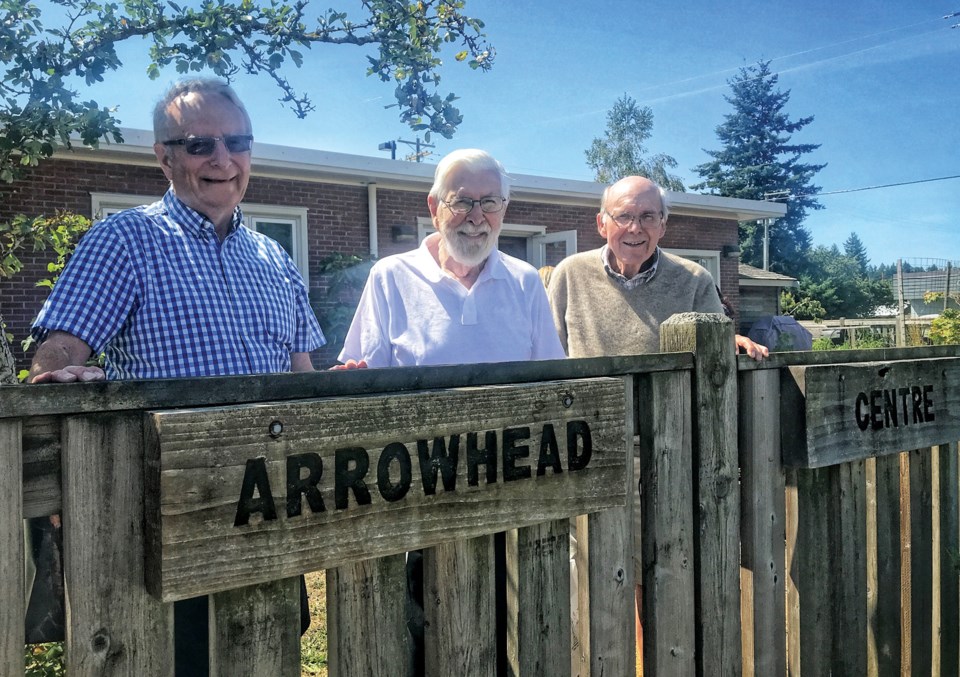A few days ago, I attended a ceremony at the Arrowhead Clubhouse to honour three exceptional men. It was a low-key event. The usual morning contingent of members were there, as well as a handful of board members old and new.
I call the honourees the Three Wise Men. Some, half jokingly, refer to them (and a few others) as the St. John’s Mafia. They are Bob Smith, Brian Smith, and Jim Chisholm, and without years of tireless effort and vision, Arrowhead would not be what it is today. I’ll get to Arrowhead’s impact on the community in a moment, but first a little history.
On Nov. 1, 2010, the clubhouse opened its doors in the old RCMP building at the corner of Mermaid and Inlet, adjacent to the Olympic Legacy Housing unit. Before this, and for many years, Arrowhead led a nomadic existence – which suited some members but which fell short of need and potential.
The first couple of years brought many challenges. Issues of governance, our relationship with Community Services (which staffs the clubhouse), budgets, and community relations were major pieces in the whole Arrowhead project – though by far not the only ones.
The Three Wise Men, together with the board and staff, took on these fundamental, existential struggles with patience and imagination. It was an entirely democratic process. Then, as now, members had an equal voice in debates and decision making. I have to admit that in those formative days, our democracy was sometimes messy and frustrating. But in the end, patience was rewarded and the clubhouse found itself with a stable and flexible operating environment.
Arrowhead’s impact on the community was almost instant.
Folks living with a mental illness who did not feel comfortable visiting Arrowhead in its previous incarnations found there was a safe place, staffed by capable and professional people, to spend the day.
But beyond merely a place to hang out, Arrowhead offered a specific model of operation – one shared by over 300 clubhouses worldwide – that placed members and their needs at the centre of things. If, for example, members wanted an art program, they could put it up for discussion and a vote at one of the weekly decision-making meetings. The same went for a lunch program, the kitchen garden, trips and other activities.
This essentially democratic model, articulated and encouraged by the Three Wise Men, led to a sense of ownership and responsibility among members. The clubhouse was theirs. And it remains so.
In the process of helping put together myriad grant applications, it was suggested to me by one of the wise men that I survey law enforcement and the medical community to get a sense of the impact Arrowhead was having. It was gratifying – though not surprising – to hear that caseloads in both areas were lower and that this positive trend was attributable to the stable social environment at Arrowhead.
The clubhouse stands as a monument to dedication and purpose on the part of three remarkable men. But for me (and others) their most significant achievement was of a different order. They inspired people in the community to step up, to volunteer their time and skills, to help bring the sometimes nettlesome issue of mental health into the light. To make our community more complete, caring, and inclusive. It is a proud legacy.



